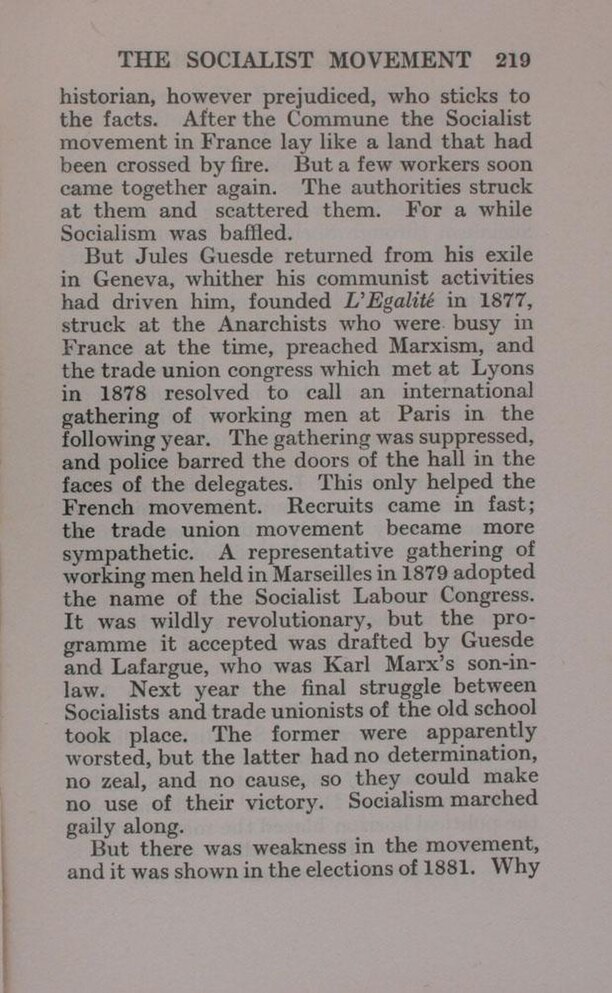historian, however prejudiced, who sticks to the facts. After the Commune the Socialist movement in France lay like a land that had been crossed by fire. But a few workers soon came together again. The authorities struck at them and scattered them. For a while Socialism was baffled.
But Jules Guesde returned from his exile in Geneva, whither his communist activities had driven him, founded L'Egalité in 1877, struck at the Anarchists who were. busy in France at the time, preached Marxism, and the trade union congress which met at Lyons in 1878 resolved to call an international gathering of working men at Paris in the following year. The gathering was suppressed, and police barred the doors of the hall in the faces of the delegates. This only helped the French movement. Recruits came in fast; the trade union movement became more sympathetic. A representative gathering of working men held in Marseilles in 1879 adopted the name of the Socialist Labour Congress. It was wildly revolutionary, but the programme it accepted was drafted by Guesde and Lafargue, who was Karl Marx's son-in-law. Next year the final struggle between Socialists and trade unionists of the old school took place. The former were apparently worsted, but the latter had no determination, no zeal, and no cause, so they could make no use of their victory. Socialism marched gaily along.
But there was weakness in the movement, and it was shown in the elections of 1881. Why
